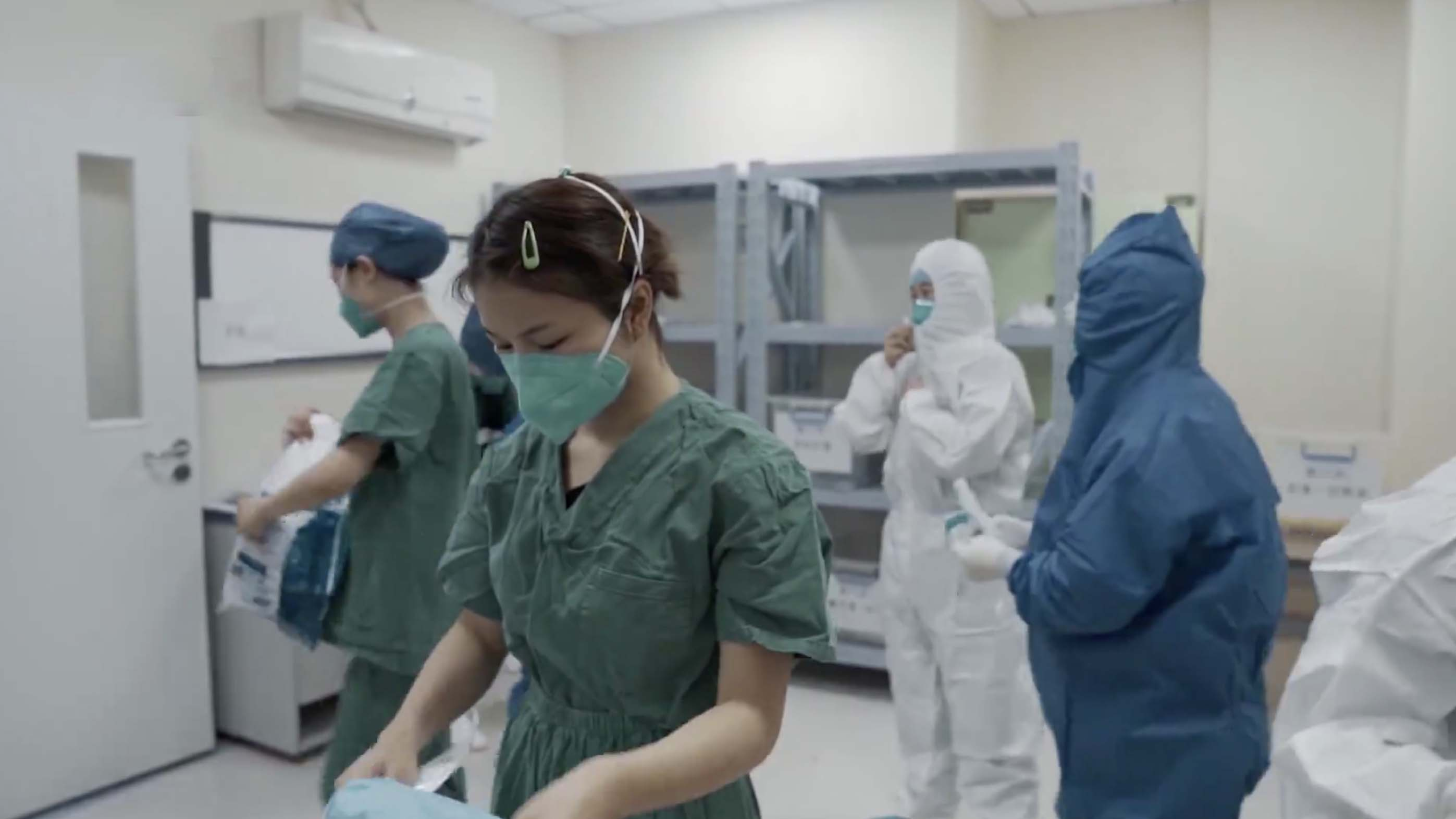03:59

Doctors, nurses and ordinary citizens are on the frontlines in the battle against the coronavirus.
On February 7, I went to the West District of Wuhan Union Hospital are tried to stay there for 24 hours for a short documentary.
From the second floor to the fifteenth, the hospital's inpatient building has been converted into a level-3 protection quarantine ward for treating seriously ill coronavirus patients.
But as I entered one of the wards, I was told that I couldn't take anything in, including my camera.
"No, it's impossible," said Jin Yang, vice president of the Wuhan Union Hospital.
"We can't even take our phones inside. I even bought a new phone to use inside the quarantine areas. But I would never dare take it out, unless the epidemic was over. Then I can take it out and mount it onto the wall as a souvenir."
Whatever goes inside needs to stay inside. That's the rule here.
The doctors and nurses here have to wear two layers of protective suits, hand gloves, shoe covers, face masks and goggles before entering the special ward.
Lyu Wen, a nurse, said, "my face is wounded. Lots of blisters are under the gauze. It's too painful. I have to put on the gauze, or I can't wear the face masks and the goggles. "
Finally, I was let inside with a Go Pro, which had to be put into disinfectant for a whole day after filming.
Inside the quarantine areas, the doctors and nurses here have to work six hours without rest. They can't drink, eat or even use the toilet.
"The hospital bought adult diapers for us. Normally we would wear them everyday," said nurse Zhang Fang.
Nurse Zhu Peipei added it's because one protective suit is over 300 yuan. "We're trying our best to save them."

A rash caused by wearing protective clothing for a long time. /CGTN Photo
A rash caused by wearing protective clothing for a long time. /CGTN Photo
Here I met Dr. Tang Xin just after he had inserted a catheter into a patient. Tang said the severely ill patients need special care.
"The most difficult thing is when the patient's symptoms get worse, they gradually lose consciousness. It makes medical treatment like using a ventilator or injection much more difficult."
Since I came into this special ward, the bells of the patients haven't stopped ringing.
After staying here for only an hour, I was already covered in sweat and felt suffocated, so it has to be worse for the nurses who have to rush to attend to the patients all the time.
Changing diapers for the patients is part of nurse Zhu Peipei's job. "After six hours of work, lots of nurses need to inhale oxygen."
The doctors and nurses have to separate themselves in hotels from their families. When talking about her 3-year-old daughter, Zhu's voice trembles.
"I haven't seen her in two weeks. I really, really miss her. I go back to the hotel very late. When I want to see her on video chat, she's already asleep."
After six hours of intensive work, Dr. Tang was finally able to take off his protective gear, and that was when I saw the rash all over his body.
I asked him how did he managed to resist the itch inside the quarantine areas.
"Inside the quarantine wards, I'm too busy to feel itchy. But now after coming out, I'm very itchy." The rash takes six to eight hours to go away. He added, "after a sleep, I'm OK."
Medical workers in Wuhan are facing mounting pressure, but Tang believes the future is bright.
"The Pandora's box has been opened, unleashing disaster, fear and illness. But there could be one thing still left in the box. That's hope. As long as hope is there, we shall overcome."
It's these people who make us believe one day we can win this battle against the coronavirus.